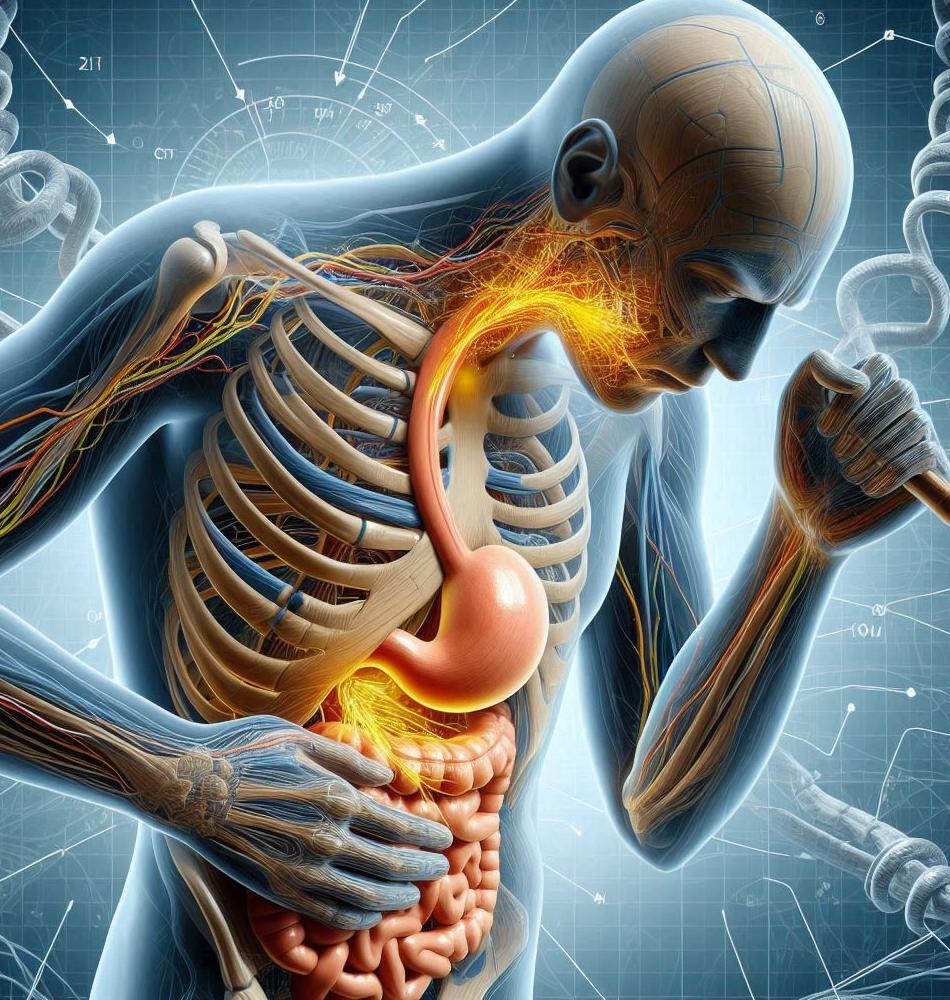Nausea, that unsettling sensation that churns in your stomach and leaves you feeling uneasy, is something nearly everyone experiences at some point in life. Whether it stems from food poisoning, motion sickness, or even the anxiety of public speaking, nausea is undeniably a powerful discomfort. At the other end of the scale, we have vomiting—often seen as the body's extreme reaction to eliminate what it perceives to be harmful. But there's a long-standing debate on whether this physical expulsion indeed offers any relief from that nagging feeling of nausea. In this article, we shall take a closer look at this intriguing question: does vomiting relieve nausea?
The Relationship Between Nausea and Vomiting: Understanding the Connection 🌐
To understand the dynamics between nausea and vomiting, one must explore the mechanisms behind each. Nausea is the sensation, the warning signal that something may be amiss in the body. Vomiting, on the other hand, is often the conclusion of that warning, acting as the body’s emergency response to expel harmful substances or irritants.
How Do They Interact? 🌀
When a person feels nauseous, the brain can interpret this discomfort in different ways. In certain scenarios, this interpretation leads to vomiting. Here’s how the two interact:
- *Chemical Signals*: The body registers harmful substances via chemoreceptor trigger zones, leading to feelings of nausea or the act of vomiting. - *Emotional Triggers*: Anxiety or stress can lead to nausea and, in some instances, result in vomiting as a physical release.The Physiology of Nausea 🌱
Nausea is closely tied to the central nervous system and can be triggered by various factors, including:
1. **Illness or Infection**: Such as a stomach virus.2. **Motion**: As seen in sea sickness or car sickness.3. **Dietary Choices**: Overeating or food aversions can prompt feelings of nausea.4. **Medication Side Effects**: Certain medications can cause nausea.The Physiology of Vomiting 🚨
Vomiting, also known as emesis, is physically intense and often results from:
1. **Gastrointestinal Distress**: In response to gut irritation.2. **Toxin Elimination**: To expel harmful substances from the body.3. **Psychogenic Factors**: Such as severe anxiety or panic attacks.Can Vomiting Actually Provide Relief? 🌀
Now that we’ve set up a clear understanding of their interaction, let’s delve into the main question: does vomiting genuinely relieve nausea? The answer isn't straightforward; it varies per individual and situation. Here are some points to consider:
Pros of Vomiting 🚀
In certain contexts, vomiting might alleviate nausea because:
- *Immediate Relief*: If food, toxins, or irritants are causing the discomfort, expelling them can offer quick relief.- *Physiological Reset*: Some individuals report experiencing a sense of relief post-vomiting, as if the body's alarm system has reset.Cons of Vomiting ⚠️
Despite any temporary relief that might emerge, vomiting can further complicate the situation because:
- *Physical Exhaustion*: The act of vomiting can lead to increased fatigue or dehydration, especially if it occurs repeatedly.- *Cyclic Nausea*: For some, the act of vomiting may perpetuate feelings of nausea instead of alleviating them.Understanding Individual Responses 🌻
Each person has a unique threshold for nausea and a different response mechanism to vomiting. What might work for one individual may not yield the same results for another. Here are individual factors that can influence the experience:
1. **Pain Tolerance**: Higher pain thresholds may manage nausea differently.2. **Previous Experiences**: Personal history with nausea and vomiting can shape future responses.When Is Vomiting Actually Helpful? ⚕️
Vomiting can sometimes be beneficial for specific medical situations such as:
Food Poisoning 🍽️
In the instance of food poisoning, vomiting can help eliminate harmful toxins before they are fully absorbed by the body.
Overindulgence 🥴
After a night of heavy drinking or overeating, vomiting may alleviate discomfort, though it isn’t the healthiest resolution.
Severe Motion Sickness 🚙
For those afflicted by severe motion sickness, vomiting may provide an immediate yet temporary solution to the unsettling sensations.
Recognizing When to Seek Help 🌈
Not all vomiting warrants treatment; however, certain scenarios do warrant a visit to healthcare professionals:
- *Inability to Keep Fluids Down*: This could lead to dehydration.- *Persistent Vomiting*: Ongoing vomiting for over 24 hours should prompt medical attention.- *Severe Pain*: If accompanied by intense abdominal pain or discomfort.- *Signs of Dehydration*: Symptoms like dry mouth, dizziness, or infrequent urination.Frequently Asked Questions about Nausea and Vomiting ❓
- Can I treat nausea without vomiting?- What are some home remedies for nausea?- When should I avoid triggering nausea?- Is there medication specifically for nausea?Conclusion: A Delicate Balance 🌟
To sum it up, the relationship between vomiting and nausea is complex. While vomiting may provide a sense of relief in specific circumstances, it is not a universal solution and can sometimes complicate matters. Understanding your body and listening to its signals is key. Ultimately, if nausea persists, it is crucial to consult healthcare professionals to determine the most effective course of action.

